
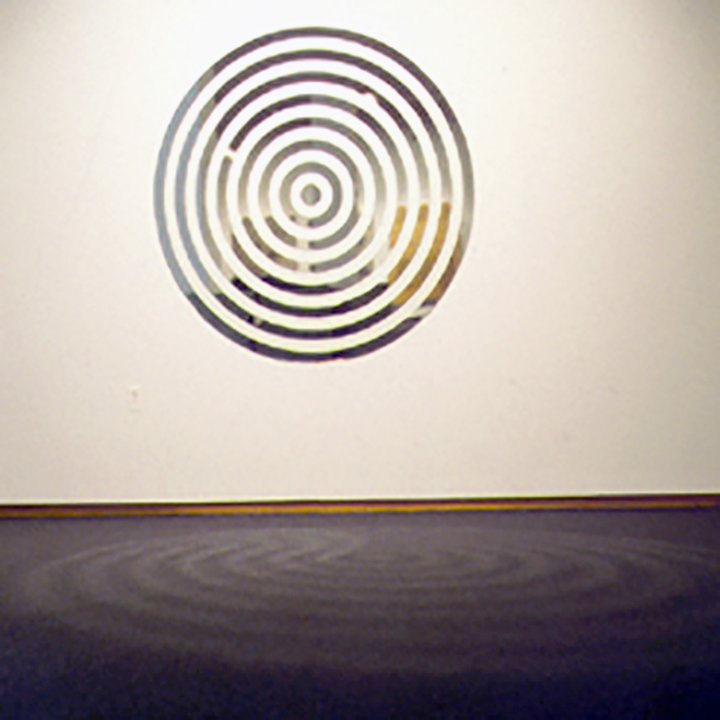
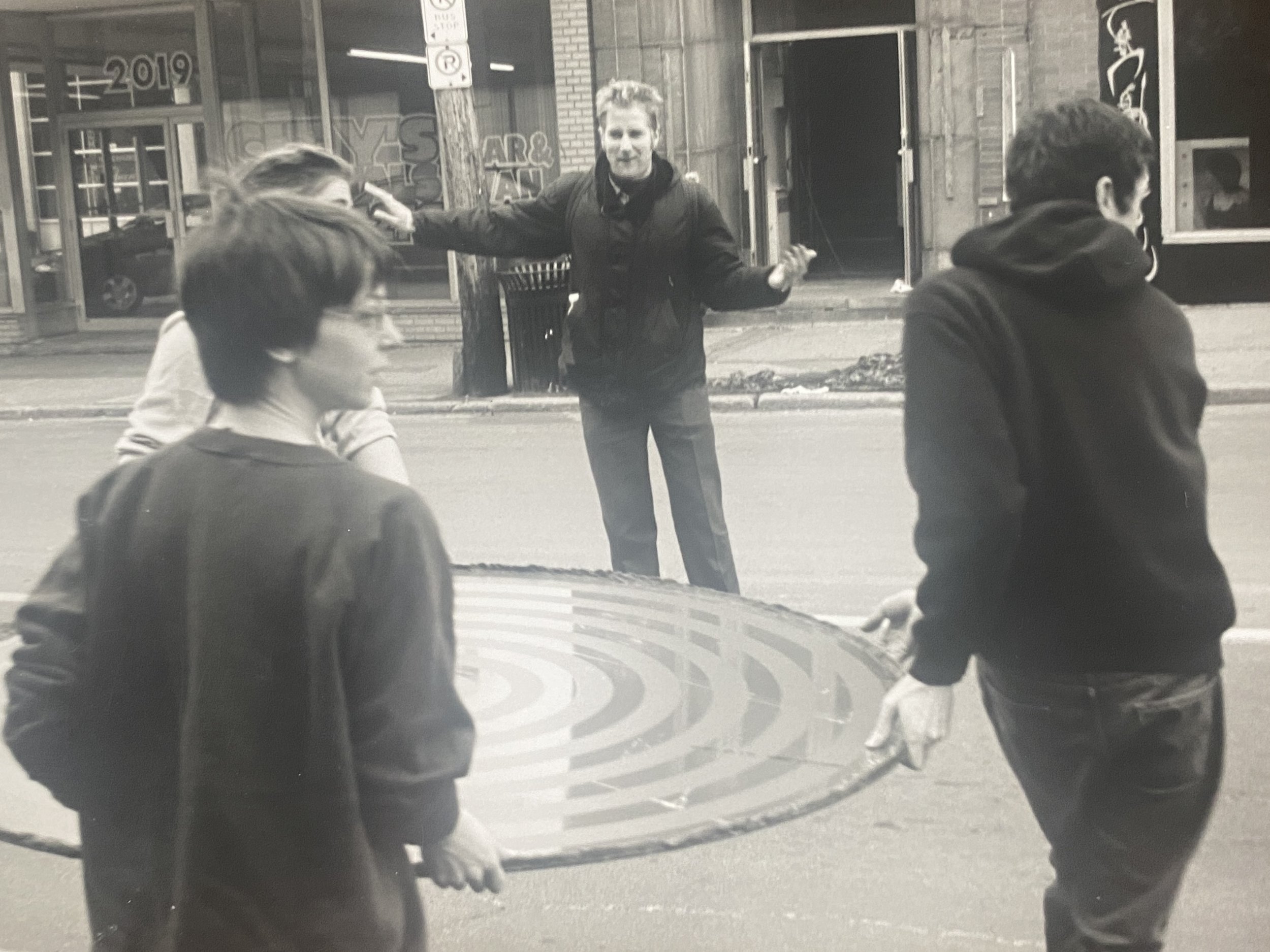
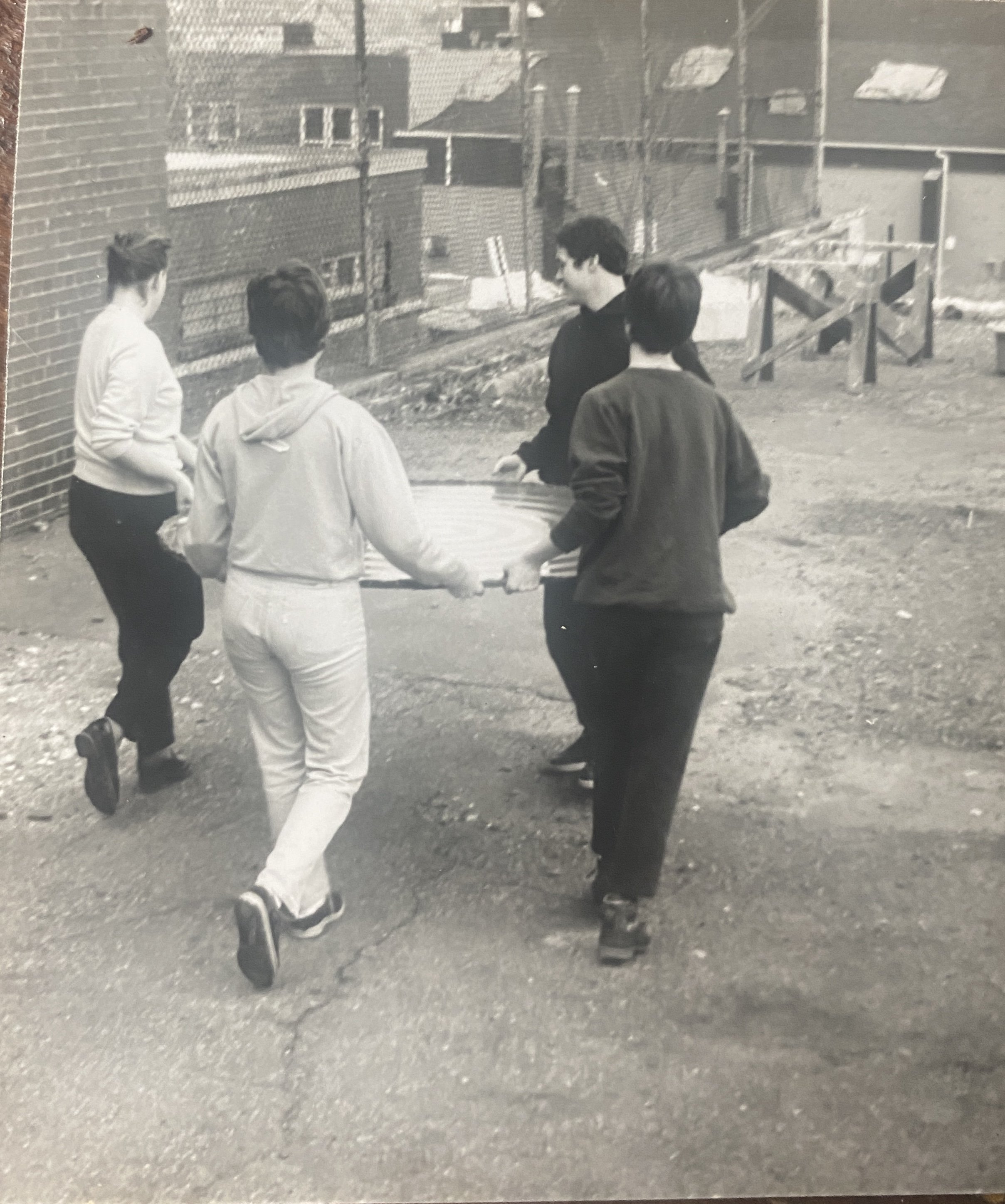
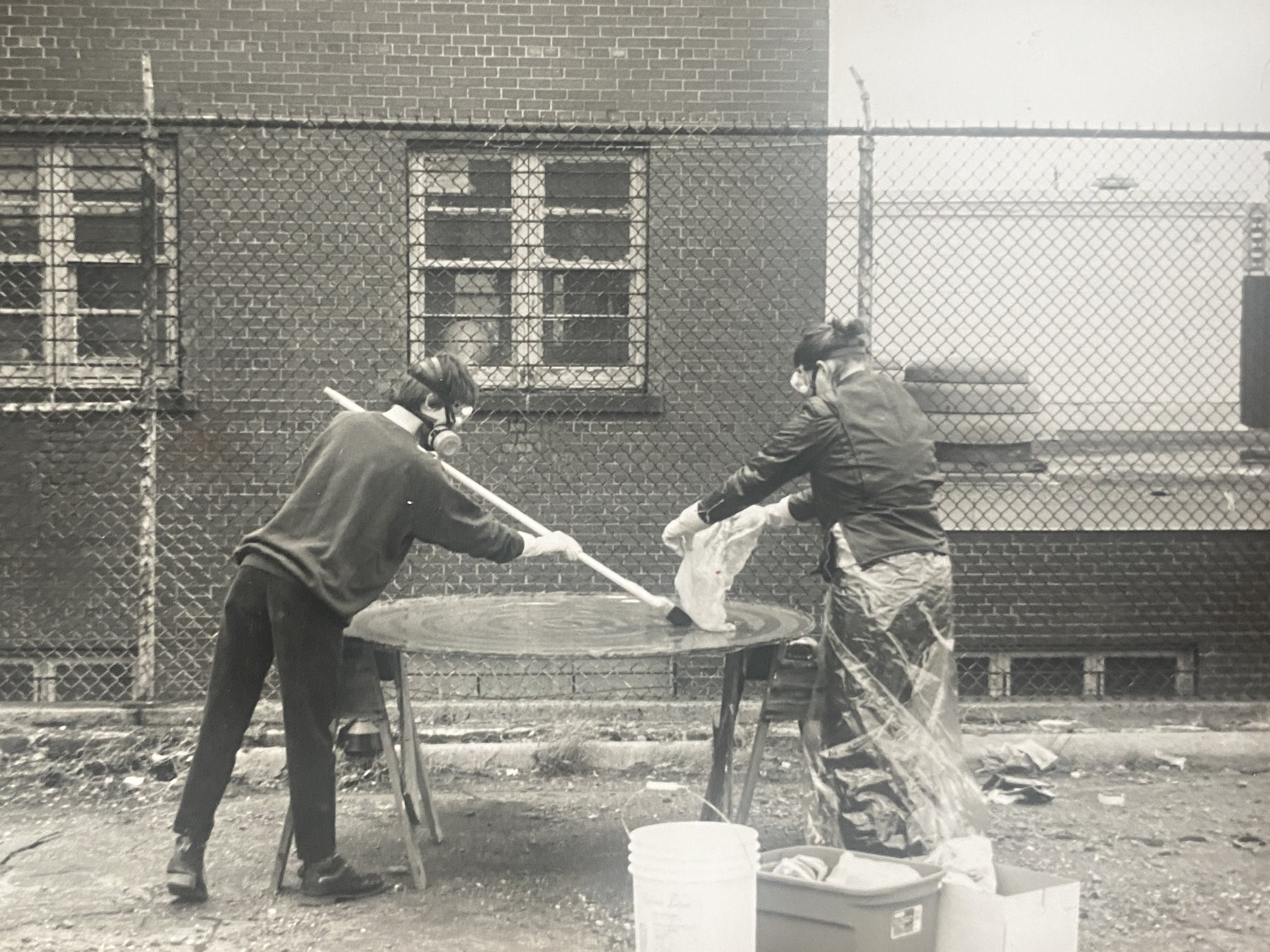
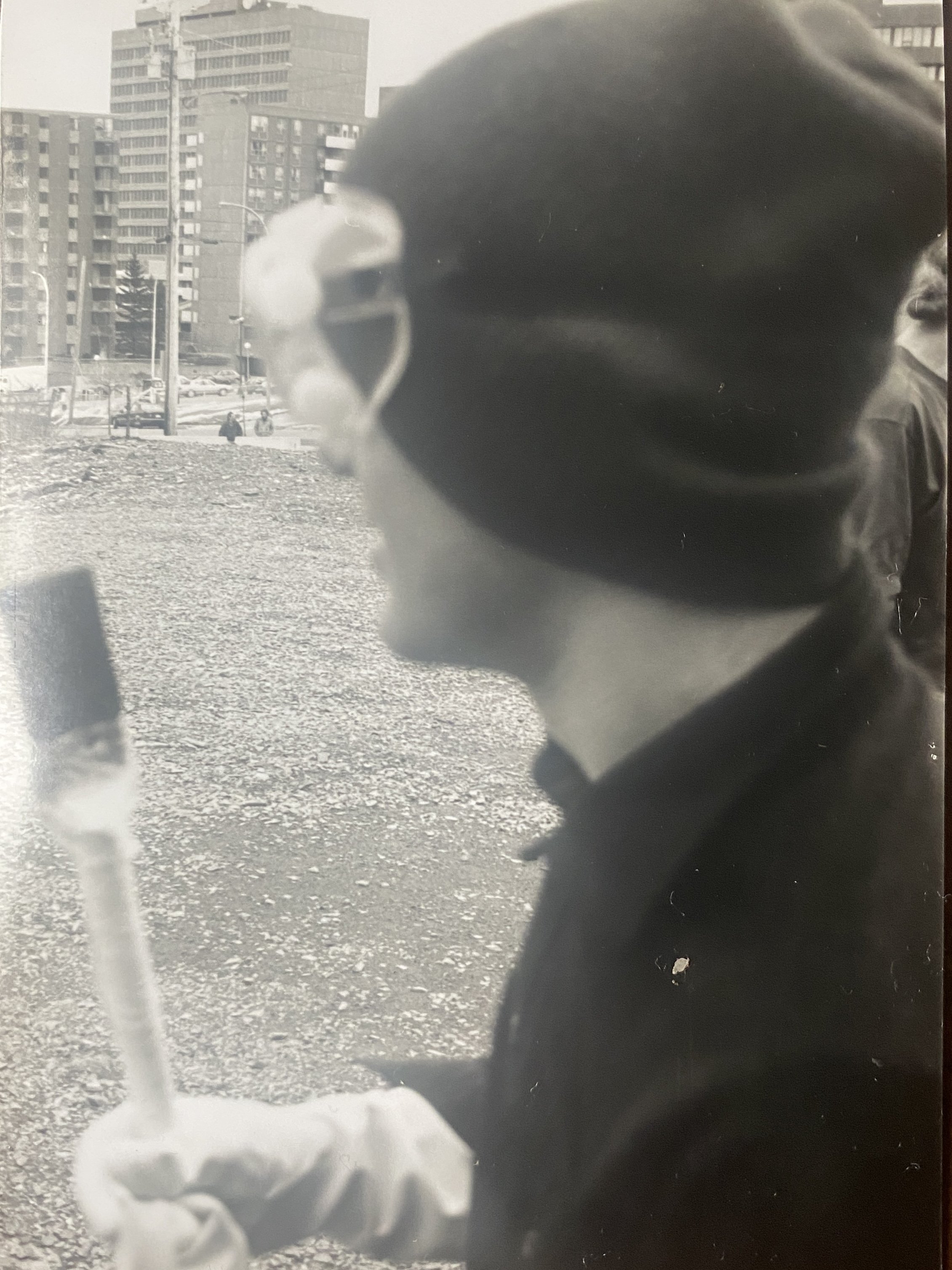
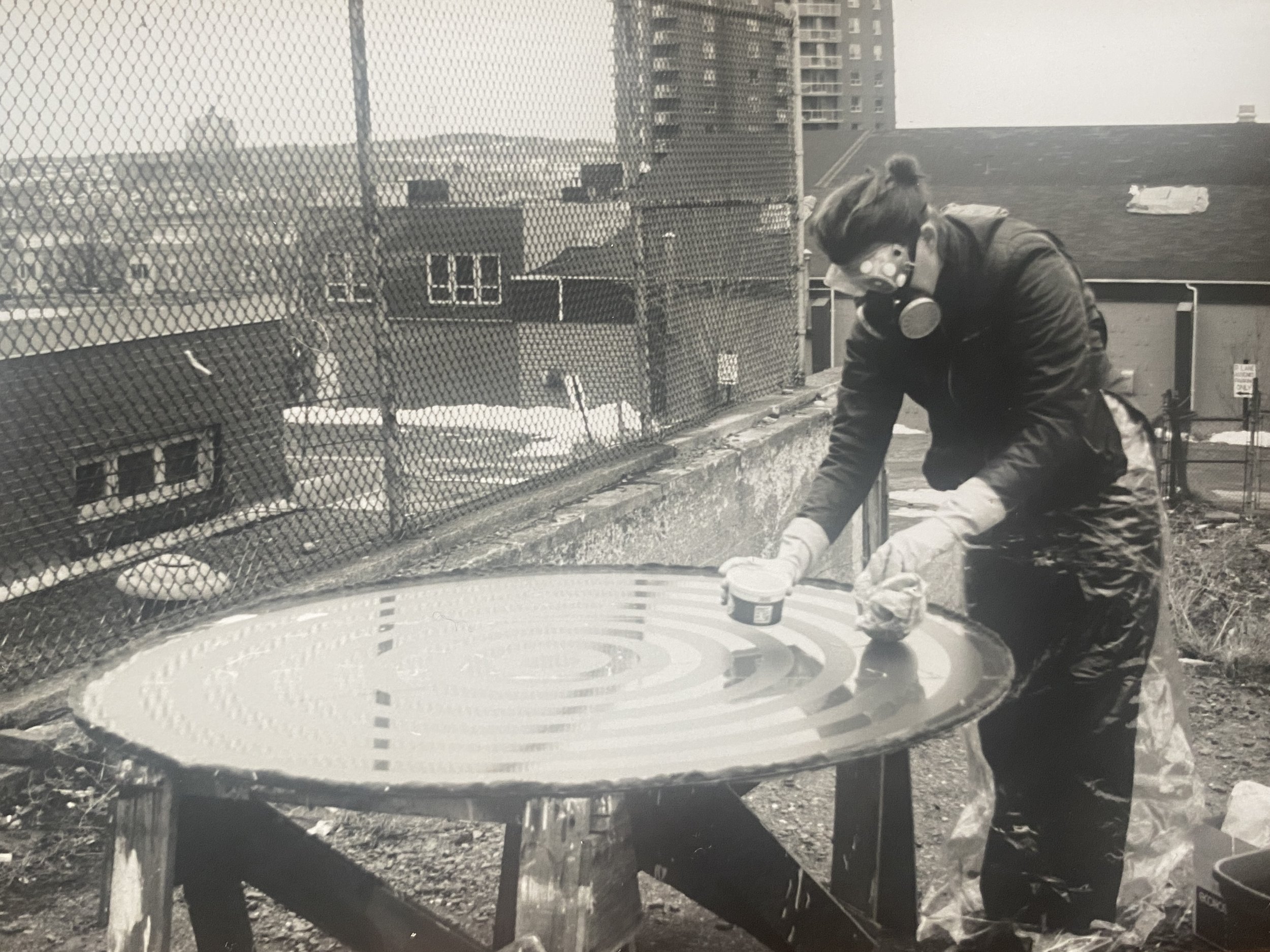

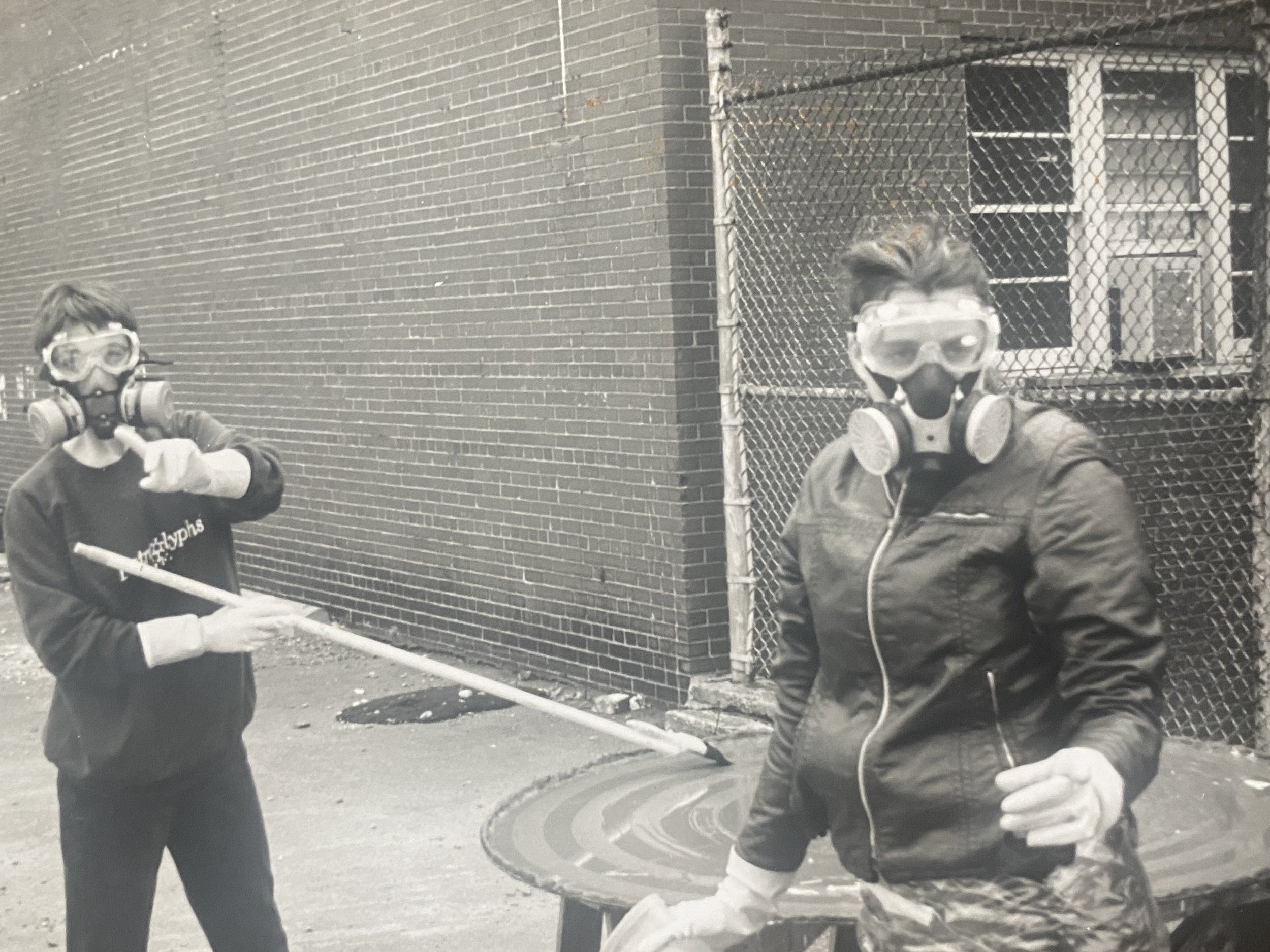
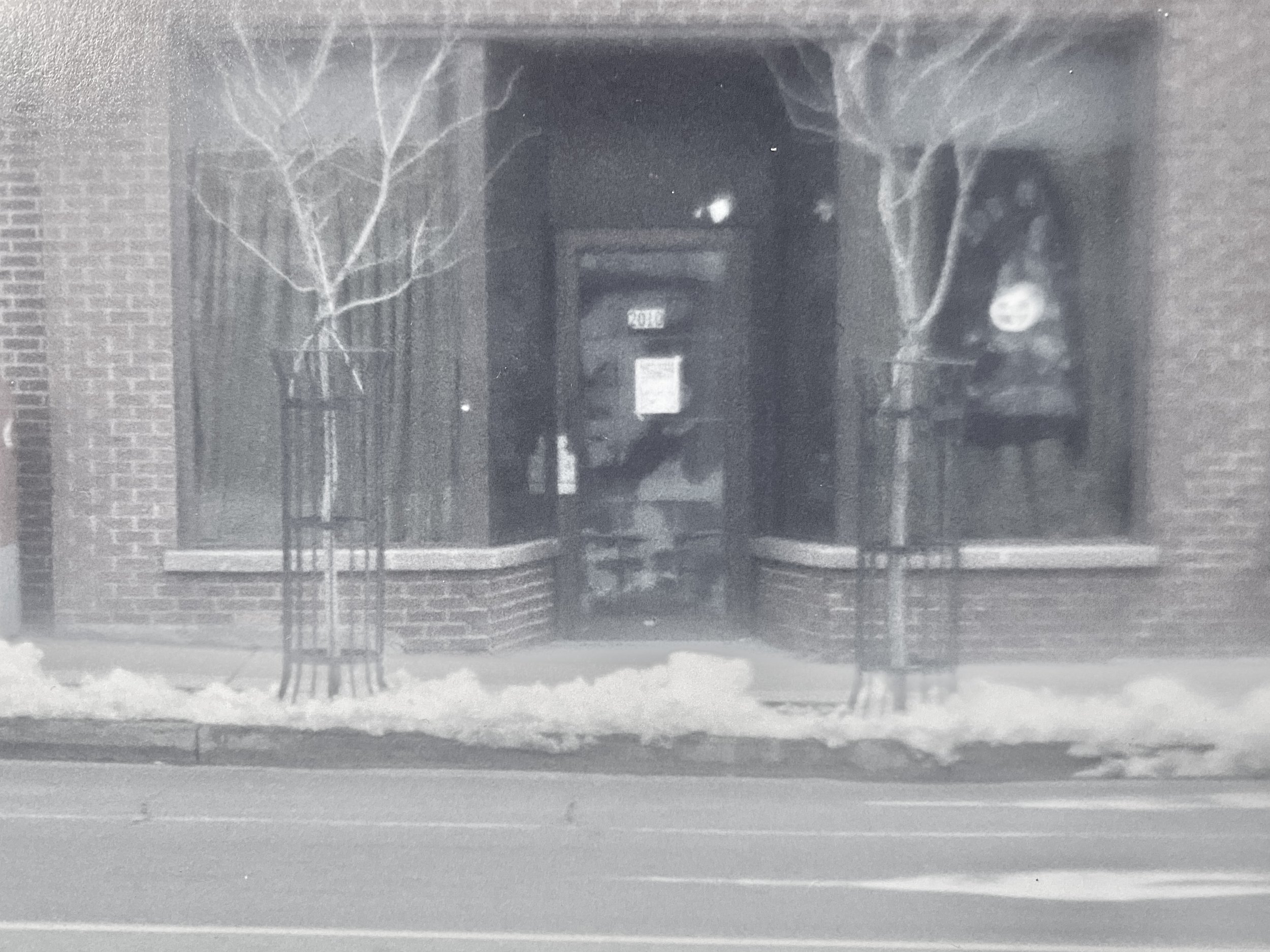

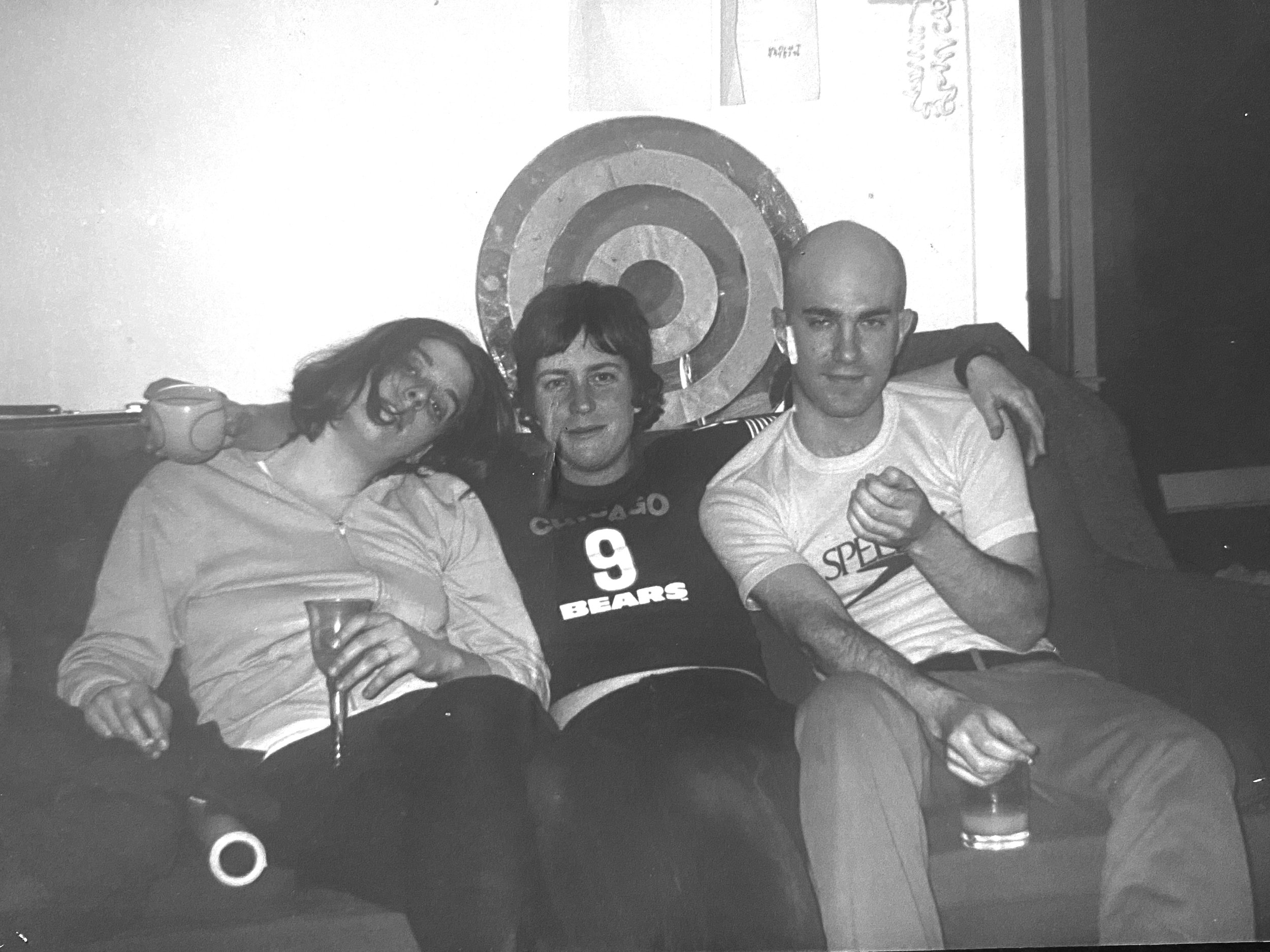

Bullseye (1997) is a five foot circular mirror presented in an eponymous exhibition with Mitchell Wiebe at The St. Mary's University Art Gallery in Halifax Nova Scotia Canada, from April 3rd to April 30th, 1997 by Gordon Laurin, "The viewer's reflection [is] targeted within a field of concentric circles."

"The work generates an exchange on presence, a kind of reciprocal aiming between viewer and the work." Laurin continues, "collectively these works act as propositions, questioning and reformulating the viewer's involvement with artwork."

The glass was purchased in Halifax and delivered to a vacant lot on Gottigen Street, and set up on saw horses with the help of good friends, Sandy Plotnikoff, Mimi Fautley, Victoria Kent, Stephen Ellwood and Mitchell Wiebe.

The design was applied to the glass as a mask. Two inch wide concentric rings were etched from the back of the glass using a type of acid procured from the printmaking department of the Nova Scotia College of Art and Design.

Acid dissolves the mirror backing. Only transparent glass between bands of mirror. This is the same method used for The Large Glass (1917), or so we thought.

A plasticine edge temporarily contained the bath of hydrofluoric acid generously donated by Murph Lively, then technician of printmaking at The Nova Scotia College of Art and Design.

fter the exhibition the work was moved to 2010 Gottigen Street for a number of rock shows hosted by Rick Of The Skins.

When fastened to the wall (with mirror clips) the reflected image is interrupted by transparent glass, catching the viewer in a bullseye of their own making.